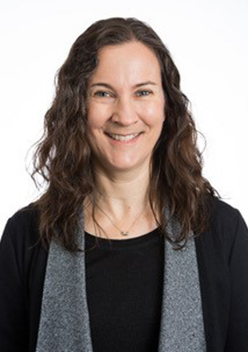
General practice was my dream after escaping the hospital system in fifth-year medicine and discovering a place where doctors spoke to their patients and knew their names and their medical history. I returned to complete my studies in the hospital, but made my friends promise to stop me being swayed by ‘the dark side’ of surgical or physician training.
GP training was initially daunting. The diversity of my training practices helped me find my future practice. I worked for nine years at the Aboriginal Health Service in Mount Druitt, where I focused on child and family health and drug health. After a midlife upheaval and enrolment in a PhD (almost finished!), I’ve recently returned to clinical medicine in Mount Druitt, working in drug health and proudly serving many people who identify as Aboriginal and/or Torres Strait Islander.
My goal is to combine my love of clinical medicine and research. A vital step in becoming a researcher is winning funding, which is very challenging when you’ve never won a grant. The RACGP Foundation grants are a great way for GP researchers to make that first big step.
You must be a GP or a have a GP on the grant application to apply for an RACGP grant. The process is straightforward, but I suggest budding applicants read everything carefully, ask someone who’s successfully been funded to review your application and, if you’re part of an organisation or university that provides research support, use everything.
My research is all about patient–doctor communication (note, the patient comes first!). There are lots of question lists and tools out there that help people ask questions when they see their doctor, and they’re being used right now. If you haven't had someone come in with a list of questions, it won't be long until you do. I’ve been taking a close look at Question Builder on the HealthDirect Australia website for my PhD. With my ever-patient supervisors, Prof Lyndal Trevena, FRACGP PhD, and Dr Heather Shepherd, PhD, I’m trying to see how this tool can best be used by patients and doctors. We’ve asked doctors what they think about question lists and Question Builder. We expect people to ask us questions or bring lists to appointments, but these lists need to be useful to them as well as us. For more, you’ll need to read the article!.
I’m now using the generous RACGP Foundation grant to fund talking to 30+ patients over three months to see how question list tools influence the way they seek information and ask questions when they see their doctors. A few weeks ago, I finished the last of more than 90 interviews, and I’m now delving into the transcripts to see what’s there to answer our questions.
My RACGP Foundation grant will sustain the research by covering the costs of transcription (it's expensive), publication (also, really expensive!) and some additional help managing all the files, appointments and invoicing from the research assistants in our team (Pinika and Liv are awesome). The grant means so much more than the funding it provides. This is the start of my track record. Every application for funding in the future means I can show I’ve received funding in a competitive grant process, which is invaluable.
If you have an idea for a project, start writing it down and submit an application. You have nothing to lose and so much to gain. We need a vibrant and active research presence in general practice. We need to research what affects us, or others will. We need to ensure there’s no research about us without us!
Dr Marguerite Tracy is a Senior Lecturer at The University of Sydney School of Public Health, Faculty of Medicine and Health.